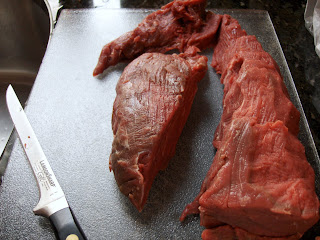Here we go again
Free the Grapes!: Massachusetts Attorney General to Spend Taxpayer Money to Maintain
Discriminatory Ban on Wine Direct Shipping
February 2, 2009, Napa, CA – Despite a decisive opinion and remedy order by widely respected
U.S. District Court Judge Rya Zobel, Massachusetts Attorney General Martha Coakley will spend
taxpayer dollars to appeal the judge’s decision, which promised an expansion of consumer choice
in fine wine.
On November 19, 2008, Judge Zobel ruled unconstitutional a Massachusetts statute that bans winery-to-consumer shipments from wineries producing more than 30,000 gallons and who retain a Massachusetts wholesaler; these wineries account for over 90% of all of the wine produced in the US each year, according to the plaintiff’s filing (Family Winemakers v. Jenkins). On December 18, Judge Zobel enjoined the state from enforcing Sections 2, 18 and 19(F) of the Massachusetts General Law Chapter 138.
Now, Attorney General Coakley intends to appeal the final decision to the 1st Circuit Court of Appeals.
“The 30,000 gallon cap statute has been a lightning rod for consumer anger and press opposition. Now that it has been ruled unconstitutional, Massachusetts’ citizens should wonder why their taxes will go to defend this anti-consumer statute whose sole purpose appears to be to maintain a state-sanctioned monopoly in wine distribution,” said Jeremy Benson, executive director of Free the Grapes, a national coalition of thousands of wineries and 300,000 wine lovers.
(www.freethegrapes.org).
According to Free the Grapes!, if successful, the AG’s appeal will:
• Reduce Consumer Choice: Maintain a law that effectively bans all winery-to-consumer
wine shipments, making MA one of the remaining 15 states that continues to prohibit its
of age citizens from purchasing the wines they want directly from licensed, regulated
wineries;
• Ignore Working Solutions: Successful direct shipping “model” legislation is working
successfully in a majority of the states – the model bill satisfies state regulators and wine
lovers, and in several cases, provides states with a new source of tax revenue;
• Waste Taxpayer Money: If the state loses, then the case will have expended taxpayer
money on needless legal wrangling;
• Ignore Opposition in Other States: The “cap” approach has been introduced
unsuccessfully for three consecutive years (FL), litigated (AZ), angrily opposed by
consumers (OH), and now ruled unconstitutional (MA);
• Provide No Benefit to Massachusetts Wholesalers: Even the chairman of the country’s
largest wine and spirits distributor, Southern Wines & Spirits, was quoted in IMPACT
trade magazine that direct-to-consumer shipping has “…not hurt us in any way.”
Free the Grapes! encourages Massachusetts consumers to visit its website at
www.freethegrapes.org and personalize a message sent automatically to Attorney General
Coakley, as well as to send letters to local newspapers for consideration.
Massachusetts Background
In 2005 Massachusetts House Bill 4498 was introduced and passed both the House and Senate.
The bill was condemned for seeking to place conditions on out-of-state wineries that did not exist
for Massachusetts’ wineries. No in-state wineries produced more than the 30,000 gallons, and
they could sell directly to Massachusetts consumers as well as through state wholesalers.
Out-ofstate wineries over the 30,000 gallon cap would not have this option – they would have to either sell directly to consumers or through a Massachusetts wholesaler, if a wholesaler chose to
represent them. Wineries that retained a Massachusetts wholesaler and produced more than
30,000 gallons were prohibited from direct-to-consumer shipping. Governor Mitt Romney vetoed HB 4498 in November 2005 – commenting on its "anti-consumer effect, as well as its dubious constitutionality" – but the veto was overridden. In January 2006, Governor Romney introduced, but failed to pass, a separate bill similar to legislation working successfully in many other states, commenting that “It’s time we end the monopoly that wholesalers have over wine sales…”
Instead of passing the Governor’s new bill, the wholesaler supported HB 4498 became law in 2006. On September 18, 2006, Family Winemakers of California v. Jenkins was filed, stating that current Massachusetts law violated the nondiscrimination principle of the Commerce Clause, which prohibits “laws that burden out-of-state producers or shippers simply to give a competitive advantage to in-state businesses.” (U.S. Supreme Court, Granholm v. Heald, May 2005). The case was funded in large part by the Coalition for Free Trade (www.coalitionforfreetrade.org) with Family Winemakers of California as lead plaintiff.
Massachusetts is the seventh largest wine consumption state in the U.S. (source: Adams Wine
Handbook, 2007, figures from 2006 data). For more information, visit www.freethegrapes.org,
www.familywinemakers.org, www.coalitionforfreetrade.org.
# # #
Media Contact: Jeremy Benson, Free the Grapes! (707) 254-1107























